Contents
- 1 Solo Camping Trip
- 2 Benefits of Solo Camping Trip
- 3 Conclusion
- 4 FAQs (Frequently Asked Questions)
- 4.0.1 What are the benefits of solo camping?
- 4.0.2 Is solo camping safe?
- 4.0.3 How do I choose a suitable campsite for solo camping?
- 4.0.4 What should I do in case of an emergency while solo camping?
- 4.0.5 How can I stay entertained during solo camping trips?
- 4.0.6 What are some essential items to pack for a solo camping trip?
Solo Camping Trip
Imagine the crackle of a campfire under a canopy of stars, the soothing sounds of nature lulling you to sleep, and the sense of self-reliance and independence that comes with a solo camping trip. It’s an experience unlike any other, offering solitude, introspection, and a chance to reconnect with the natural world away from the hustle and bustle of daily life. In this comprehensive guide, we delve into the essence of solo camping, offering insights, tips, and essential gear recommendations to ensure a safe, fulfilling, and memorable experience.
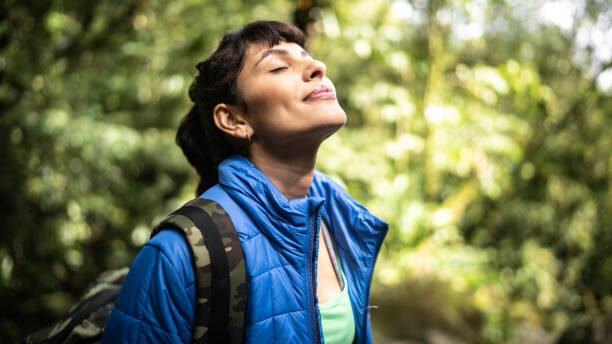
1. Preparing for Your Solo Adventure
Embarking on a solo camping trip requires meticulous planning and preparation to ensure a safe and enjoyable experience.
Choosing the Right Location: Selecting the perfect camping spot is crucial for a successful solo adventure. Look for established campgrounds with designated sites, preferably with easy access to amenities such as restrooms and potable water.
Plan Your Route: Map out your journey, noting important landmarks, water sources, and emergency exits. Share your itinerary with a trusted contact.
Pack Wisely: Choose essential items for your trip, such as shelter, food, water, and safety gear. Keep your pack light and efficient.
Brush Up on Skills: Practice essential camping skills like setting up camp, navigation, and first aid. Learn about the local environment and potential hazards.
2. Embracing Solitude in Nature
Solo camping presents a rare opportunity to disconnect from the hustle and bustle of daily life, allowing individuals to immerse themselves fully in the serene embrace of nature. Far from the distractions of modernity, campers can relish in the tranquility of a secluded forest, the melody of chirping birds, and the gentle rustle of leaves in the wind.

Finding Your Perfect Spot: Selecting the ideal camping spot is paramount to a successful solo adventure. Whether nestled beside a crystal-clear stream, atop a windswept mountain ridge, or beneath the canopy of ancient trees, the location should resonate with your soul and offer both safety and solitude.
Preparing Mentally and Physically: Preparation is key to ensuring a smooth solo camping experience. Take the time to familiarize yourself with the area, research local wildlife and weather conditions, and equip yourself with the necessary skills and knowledge to navigate the wilderness confidently.
3. Essential Gear for Solo Campers
Packing the right gear is essential for comfort, safety, and convenience during your solo camping expedition. Here’s a rundown of must-have items:
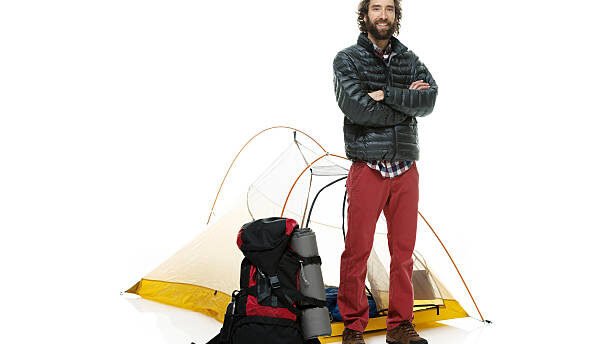
Shelter: Invest in a reliable tent or hammock to provide protection from the elements and ensure a restful night’s sleep.
Navigation: Carry a map, compass, or GPS device to navigate unfamiliar terrain safely.
Food and Water: Pack lightweight, non-perishable food items, and ample water to stay nourished and hydrated throughout your journey.
First Aid Kit: Be prepared for emergencies with a well-stocked first aid kit containing essential supplies and medications.
Lighting: Bring a headlamp or flashlight to illuminate your campsite and navigate after dark.
Clothing: Dress in layers to adapt to changing weather conditions, and don’t forget sturdy footwear for hiking.
4. Setting Up Camp
Arriving at your chosen campsite marks the beginning of your wilderness retreat.
Pitching Your Tent: Follow the manufacturer’s instructions to set up your tent efficiently. Choose a level and well-drained spot, and secure your tent with stakes to withstand any unexpected weather conditions.
Campsite Safety: Prioritize safety when setting up your camp. Keep food stored securely to deter wildlife, and familiarize yourself with any potential hazards in the area, such as poisonous plants or steep cliffs.
5. Exploring Nature
Venturing into the wilderness offers endless opportunities for exploration and discovery.
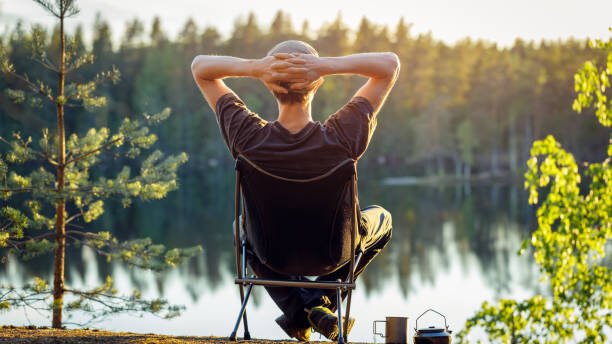
Hiking Trails: Embark on a hike to immerse yourself in the beauty of nature. Choose trails suitable for your fitness level and duration, and don’t forget to carry essential supplies such as water and snacks.
Wildlife Encounters: Respect wildlife from a safe distance and avoid feeding or approaching animals. Admire them from afar and capture memorable moments through photography, ensuring not to disturb their natural habitat.
6. Enjoying Solitude and Reflection
Solo camping provides a unique opportunity for introspection and self-discovery.
Mindfulness Practices: Engage in mindfulness activities such as meditation or journaling to connect with your surroundings and foster a sense of inner peace.
Stargazing: As night falls, marvel at the beauty of the night sky unpolluted by city lights. Use a stargazing app to identify constellations and planets, enhancing your celestial experience.
7. Safety First: Tips for Solo Campers
While solo camping offers unparalleled freedom and adventure, it’s crucial to prioritize safety at all times. Follow these tips to ensure a secure and enjoyable experience:
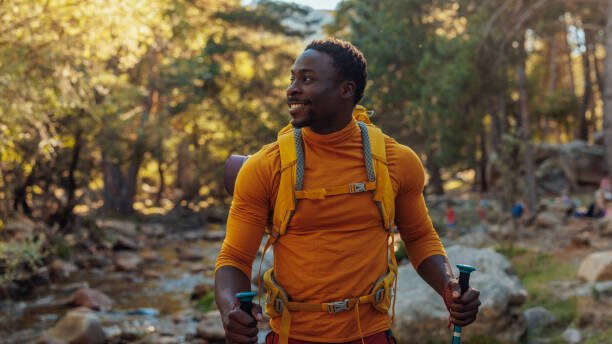
Inform Others: Before setting out on your solo adventure, inform a trusted friend or family member of your itinerary and expected return date.
Stay Aware: Remain vigilant of your surroundings, wildlife activity, and any potential hazards.
Camp Responsibly: Leave no trace by practicing responsible camping ethics, minimizing your impact on the environment, and respecting wildlife habitats.
Trust Your Instincts: Listen to your intuition and exercise caution in unfamiliar situations.
Benefits of Solo Camping Trip
Solo camping trips offer a multitude of benefits, including:
Personal Growth: Solo camping provides an opportunity for self-reflection, introspection, and personal growth. Spending time alone in nature allows individuals to reconnect with themselves, gain clarity, and develop self-reliance and resilience.
Freedom and Independence: Solo campers have the freedom to set their own pace, make their own decisions, and follow their own instincts. This sense of independence fosters a deeper connection with nature and a greater appreciation for solitude.
Escape from the Everyday: Solo camping offers a chance to escape the stresses and distractions of daily life. Immersed in the tranquility of the wilderness, campers can unwind, recharge, and rejuvenate their mind, body, and spirit.
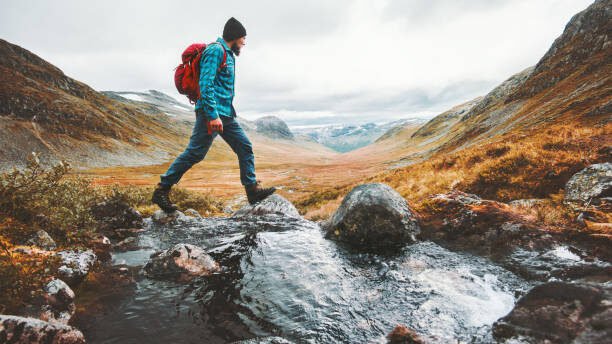
Opportunity for Adventure: Embarking on a solo camping trip allows individuals to explore new places, challenge themselves, and experience the thrill of adventure. Whether it’s hiking to remote locations, discovering hidden gems, or witnessing breathtaking landscapes, solo camping opens doors to exciting experiences.
Connection with Nature: One of the most profound benefits of solo camping is the opportunity to connect with the natural world on a deeper level. Away from the noise and chaos of urban living, campers can immerse themselves in the beauty of untouched wilderness, observe wildlife in their natural habitat, and experience the therapeutic effects of nature.
Enhanced Mental Well-being: Studies have shown that spending time outdoors can have a positive impact on mental health, reducing stress, anxiety, and depression. Solo camping provides a peaceful retreat where individuals can clear their minds, find solace in nature, and improve their overall well-being.
Sense of Accomplishment: Successfully navigating the challenges of solo camping instills a sense of accomplishment and self-confidence. Overcoming obstacles, mastering outdoor skills, and achieving personal goals while alone in the wilderness can be incredibly empowering.
Unforgettable Memories: Solo camping trips often result in unforgettable memories and experiences that stay with individuals for a lifetime. Whether it’s watching a stunning sunset, listening to the sounds of the forest at night, or sharing stories around a campfire, the moments spent alone in nature are cherished forever.
Conclusion
Embarking on a solo camping trip is not just about escaping the routine; it’s about immersing yourself in nature, testing your limits, and discovering the depths of your resilience and self-reliance. With careful planning, preparation, and a spirit of adventure, your solo camping trip promises to be an unforgettable journey of self-discovery and exploration.
FAQs (Frequently Asked Questions)
What are the benefits of solo camping?
Is solo camping safe?
Solo camping can be safe with proper preparation, planning, and adherence to safety guidelines.
How do I choose a suitable campsite for solo camping?
What should I do in case of an emergency while solo camping?
How can I stay entertained during solo camping trips?
What are some essential items to pack for a solo camping trip?



Pingback: Solo Female Camping Trip: Tips for your First Adventure - TheWorldCamping
Pingback: 12 Safety Tips for Solo Camping: Expert advice - TheWorldCamping
Pingback: Solo Camping Challenges| Tips to Overcome Challenges - The World Camping